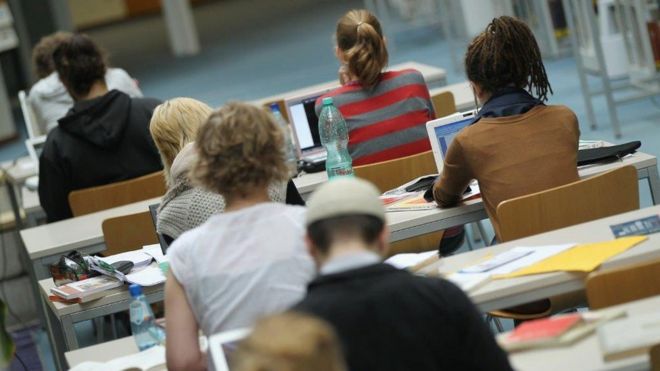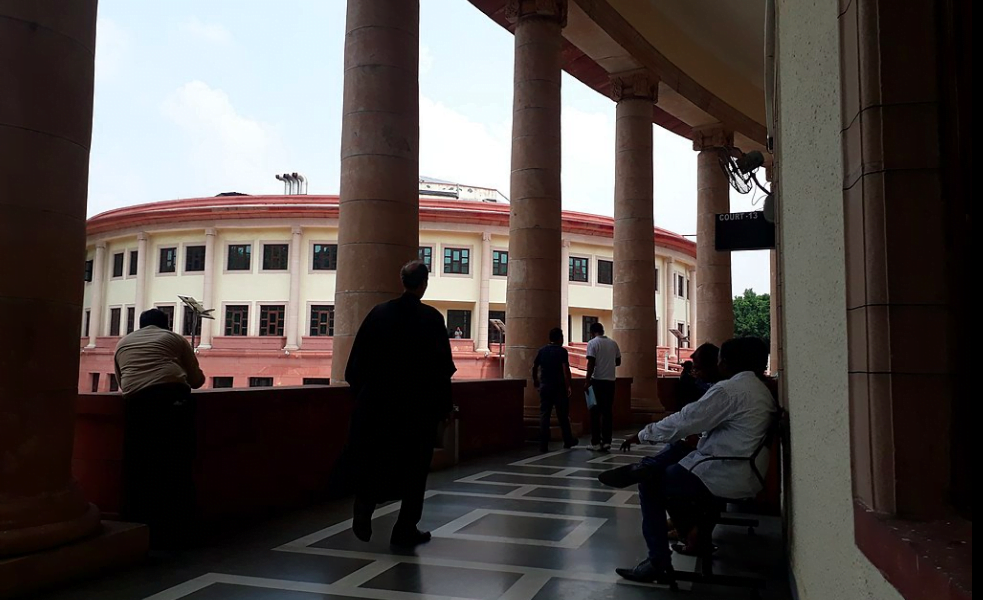
Teenagers’ likelihood of applying to university depends heavily on where they live, according to new figures.
The study, by the Press Association (PA) news agency, showed London had the highest application rate of 47%, while the South West had the lowest at 32%.
It found four times as many teenagers in Wimbledon, south London, applied compared with Havant in Hampshire.
Universities UK acknowledged institutions should do more to boost social mobility within their regions.
Sir Peter Lampl, chief executive of the Sutton Trust education charity, said the “massive difference… reflects the fact that the chances of getting to university are very much dependent on where you live and where you go to school”.
‘Massive difference’
The researchers analysed data from the Universities and Colleges Admissions Service (Ucas) on 18-year-olds applying this year.
According to the calculations, 55% of 18-year-olds in the top 10% of parliamentary constituencies in terms of university applications, had applied for a degree course by the main 15 January Ucas deadline.
But only 24% of those in the bottom 10% had applied by the same date.
In the Conservative seat of Wimbledon, south London, 70.3% of 18-year-olds applied.
But in Havant, Hampshire, also a Tory seat, the application rate was just 17.4%.
Sir Peter said work by charities like the Sutton Trust, running summer schools and providing extra support for able pupils in poorer areas, was crucial.
Research last year by the Universities UK Social Mobility Advisory Group urged universities to become “anchor institutions within their local communities to promote economic, social and cultural regeneration”.
“There are no quick and easy solutions,” said UUK chief executive Nicola Dandridge.
She said the report had recommended universities work “even more closely with schools and colleges” to boost young people’s uptake of higher education in areas where it is lower than expected given their attainment at GCSE.
‘Social factors’
Overall, young people in Tory seats are slightly more likely to apply than those in Labour seats.
The average application rate in 328 Tory seats was 38%, compared with 34% across 231 Labour seats.
- Northern Ireland had the highest application rate, at 48%
- In England the average was 37%, with London the highest region at 47% and the South West the lowest at 32%
- The average rate for Wales was 32%.
- In Scotland UCAS data only gives a partial picture as many students apply direct to colleges.
Schools and colleges in challenging areas were “working incredibly hard to close the attainment gap and support pupils who do not have the same advantages in life as their wealthier peers”, according to Malcolm Trobe, interim general secretary of the Association of School and College Leaders.
“However, the education system cannot solve the impact of significant socio-economic inequality on its own,” he said.
“There are a range of social factors which must also be addressed in disadvantaged areas, such as improving the provision of secure, well-paid employment, and good-quality, affordable housing.”
England’s Department for Education said applications from 18-year-olds, particularly those from poorer backgrounds, were at record levels.
A spokesman said the government was spending £120m on outreach, while further reforms would “mean even more people can benefit from a university education”.
[Source:- BBC]








